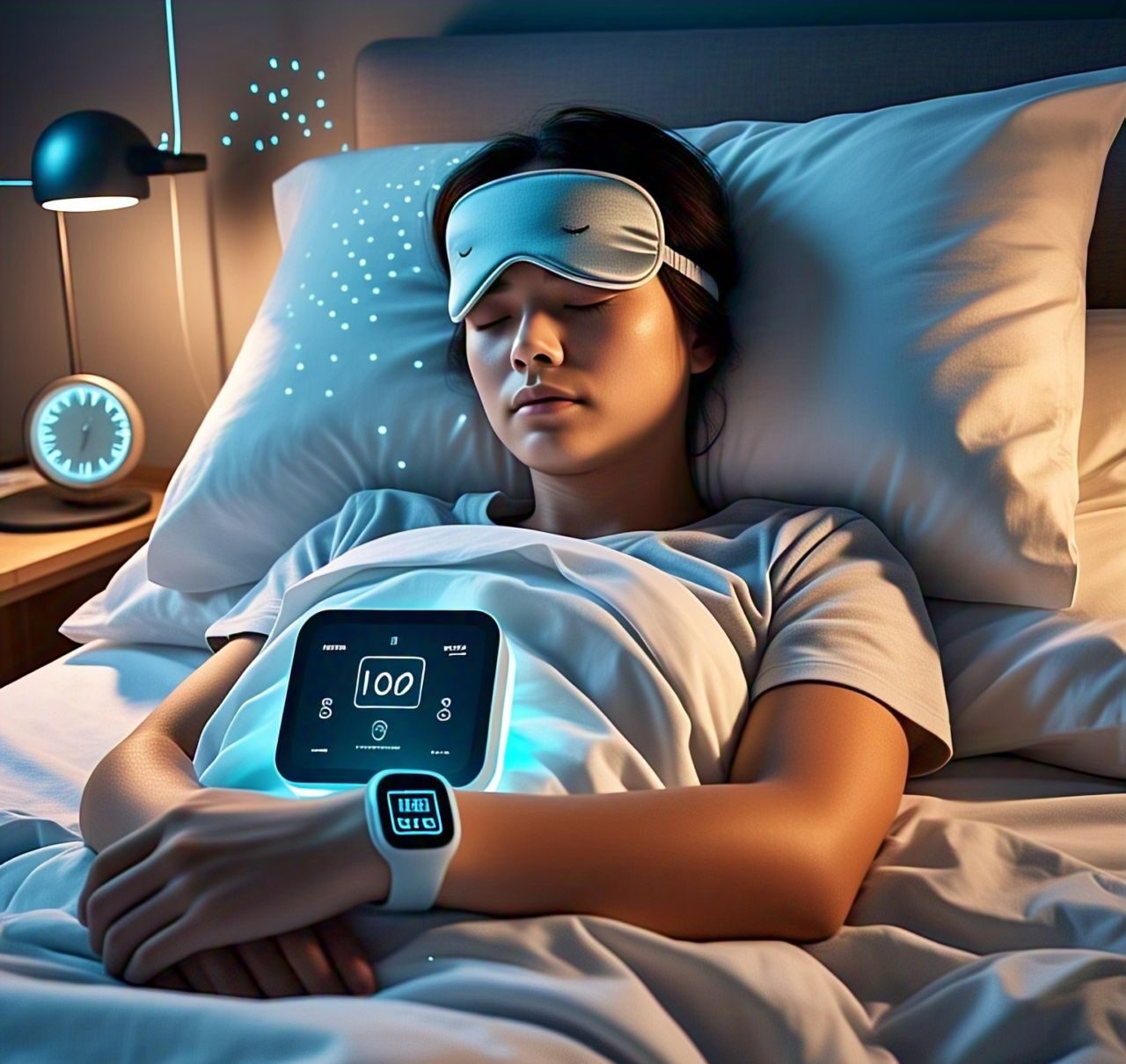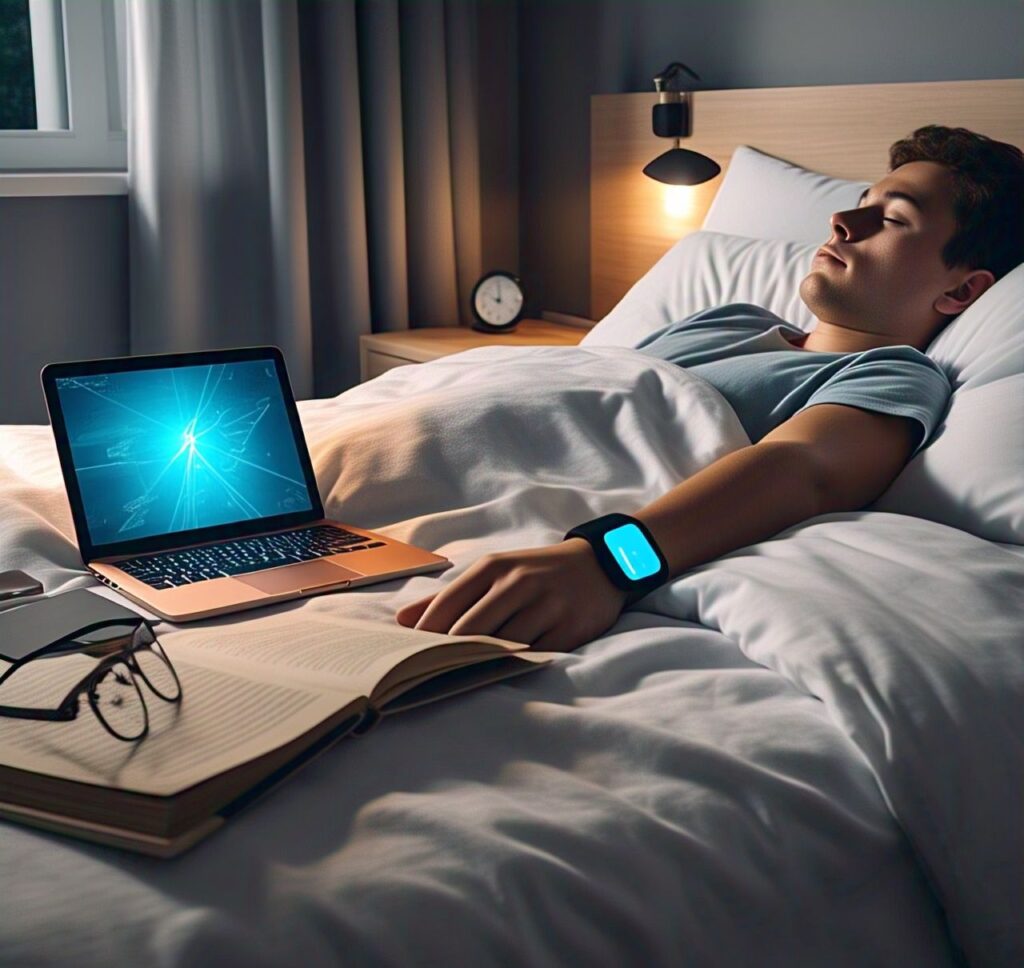Introduction
Technology has come a central part of our everyday lives. From smartphones and tablets to smart TVs and laptops, we’re constantly girdled by digital bias. While technology brings convenience and entertainment, it also has a surprising impact on our sleep. In this composition, we explore OneFramework 6 ways technology affects your sleep health and how to cover your rest.
How Technology and Sleep Are Connected

The Digital Age and Its Impact on Sleep
The digital revolution has converted our cultures. Unfortunately, it has also changed our sleep habits. Late- night screen use, constant announcements, and an always- connected mindset are crucial factors dismembering our sleep. Understanding how technology interacts with sleep is the first step toward perfecting your sleep hygiene and overall well- being.
What Is OneFramework?
OneFramework is a holistic approach to understanding how technology affects different aspects of our life, including sleep. It offers a structured way to assess technology’s impact on sleep health, fastening on six core areas. These perceptivity help individualities identify problems and apply results to sleep better in the ultramodern age.
Blue Light Exposure from Screens
How Blue Light Disrupts Melatonin product
Blue light emitted from digital defenses interferes with the product of melatonin, the hormone responsible for sleep. When you use bias before bed, your brain gets the signal that it’s still day. This confusion detainments sleep and can beget wakefulness or irregular sleep patterns that affect your rest and health.
OneFramework Insight on Light Regulation
Within the OneFramework, light regulation is a critical pillar. It emphasizes the need to reduce screen time at least one hour before bed. Using blue light pollutants or “ night mode ” features can help alleviate damage, but the most effective strategy is digital detoxing before bedtime for bettered sleep quality.
Mental Stimulation and Screen Dependence

Overstimulation Makes It Hard to Wind Down
Scrolling through social media, watching vids, or playing games before bed can overstimulate your brain. This makes it harder to relax and transition into a peaceful state. Mental engagement keeps your brain alert and active, delaying sleep onset and reducing the overall time you spend in deep sleep stages.
OneFramework Focus on Cognitive Wind- Down
Cognitive advancement is another crucial aspect of the OneFramework. It suggests replacing screen time with calming conditioning like reading a book, harkening to soft music, or rehearsing awareness. These strategies promote better cognitive wind- down and help your mind shift into a state conducive to quality sleep.
announcements and cautions Disturb Sleep Cycles
The Danger of intruded Sleep
Indeed if you manage to fall asleep, constant cautions and climate from your phone can wake you up during the night. These interruptions help you from reaching deeper stages of sleep, which are necessary for internal and physical recovery. Over time, disturbed sleep patterns can lead to fatigue and perversity.
OneFramework Recommendations for Digital Boundaries
Digital boundary setting is one of the six pillars of OneFramework. This involves silencing announcements, using” Do Not Disturb” mode, and keeping bias out of the bedroom. Creating a distraction-free resting space is essential for continued rest and further harmonious sleep cycles over time.
Late- Night Internet Use Causes Sleep Detainments
The Trap of Endless Browsing
Late- night internet browsing is a common habit that can push your bedtime further and further back. Whether it’s scrolling through social feeds, watching YouTube, or checking emails, these conditioning delay your natural sleep cues. The result is a disintegrated sleep schedule and implicit sleep debt that builds over time.
OneFramework Time Management Strategies
The time operation element of OneFramework stresses creating a strict bedtime routine. Setting a digital curfew and sticking to a regular sleep schedule helps your body develop a harmonious meter. This frame promotes balance between screen time and rest, essential for restoring healthy sleep patterns.
Emotional Impact of Online Content
Online Stress and Anxiety at Bedtime
Not all content is relaxing — news updates, social media drama, or violent vids can elevate stress situations before bed. Emotional overstimulation affects your nervous system and increases cortisol situations, a stress hormone that interferes with sleep. Emotional well- being plays a major part in achieving quality sleep.
OneFramework Emotional Health Practices
OneFramework encourages maintaining emotional boundaries online. It suggests avoiding emotionally charged content and engaging in calming rituals rather. Journaling, gratefulness practice, or calming apps can help reduce darkness anxiety, aligning with the frame’s emotional health dimension for better and deeper sleep
Dependence on Sleep Tech bias
Are Sleep Trackers Helping or Hurting?
numerous people use sleep apps and wearable tech to cover their sleep. While these tools give useful perceptivity, they can also beget anxiety or preoccupation over sleep quality. Constant shadowing can lead to stress if druggies feel pressured to meet “ ideal ” sleep scores every night.
OneFramework’s Balanced Tech Use Guidance
The final pillar of OneFramework is balanced technology integration. It supports aware use of tech — using it as a probative tool rather than a controlling force. The thing is to observe patterns without letting bias mandate your sleep geste . This empowers druggies to make informed, calm opinions about rest.
Conclusion
In moment’s presto- paced, digitally driven society, sleep health is more important than ever. By following OneFramework 6 ways technology affects your sleep health, you can identify which tech habits are damaging and borrow strategies that ameliorate your rest. Blue light, overstimulation, late- night browsing, and constant announcements all play a part. But with structure and mindfulness, you can reclaim your nights.
FQAs
What’s OneFramework?
A OneFramework is a structured companion that explains six major ways technology impacts your sleep and how to manage it effectively.
How does blue light affect sleep?
A Blue light from defenses blocks melatonin, the sleep hormone, making it harder to fall asleep.
Can announcements disturb sleep?
A Yes, late- night cautions and climate can intrude deep sleep and reduce sleep quality.
Are sleep shadowing bias always helpful?
A Not always. They can give perceptivity but may also beget anxiety if used obsessively.


